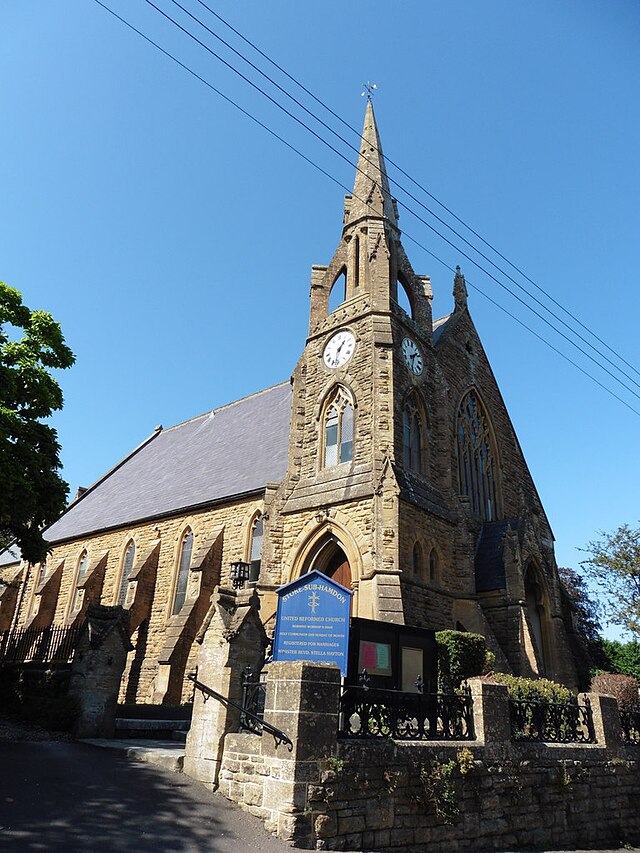Introduction
William Guppy spent his early life at Hardington Moor. He followed in the footsteps of his brothers, Samuel and Joseph, by becoming a carpenter. After marrying Harriet Ann Templeman in 1863, he moved to Stoke-sub-Hamdon, where he embraced the culture of religious nonconformity. Following Harriet’s death, he chose not to remarry but instead raised his seven children by himself. He also established his own building business.
Childhood
William was born at Hardington around 1836, the sixth of seven children born to Thomas and Mary Guppy. His father, Thomas, was a canvas weaver. His siblings included Joseph Guppy.
On 9 September 1859, William Guppy was summoned for assaulting Sarah Apsey by kissing her without permission. The Bench accepted that William’s behaviour was merely playful and dismissed the case.[1] In the newspaper report of the case, William comes across as the village Jack the lad, cheerful and exuberant. This lighthearted image contrasts with the serious-minded person he later became.
Like his brothers, Samuel and Joseph, William became a carpenter. The 1861 census shows him living with his parents at Hardington Moor.
Married life
On 24 December 1863, William married Harriet Ann Templeman at the Ebenezer Chapel, Bower Hinton (an Independent Chapel). William was about 27 years old, and Harriet was 25.
Harriet was the daughter of William and Esther Templeman. Her father was a hamstone mason or stone cutter, while her mother, who died in December 1860, was a glove sewer. Harriet’s father lived with them in his old age while receiving outdoor relief.
William and Harriet settled at Stoke-Sub-Hamdon, probably in the home of Harriet’s father, at Paradise Row, North Street. William continued his work as a carpenter, and by November 1885, he had established his own building business.[2]
William and Harriet’s first child died in infancy, but they went on to have seven more. Harriet died in April 1878 at the age of 37, just a few weeks after giving birth to their eighth child. Despite the difficulty of single-handedly caring for seven children all under the age of 13, William chose not to remarry.
Widowhood
The 1881 census shows all seven children living with William at that time. Fanny, the oldest, was a glover.
In April 1891, five of the children were living with William, while Fanny lodged next door, and Mary Alice stayed with her aunt, Susan Guppy, at the Castle Inn, West Coker.
William was probably a member of the Congregationalist Chapel, built in the village in 1865.[3] In July 1884, he erected swings and a bandstand for the Congregationalist Sunday School’s annual treat.[4]
He also participated in local civic affairs. In March 1892, he was elected an overseer for Stoke-sub-Hamdon, and in December 1894, he was elected to the parish council.[5]
William died on 30 April 1903 at the age of 64, leaving an estate valued at £679 3s 10d.
William Guppy’s will
Daughter, Julia Ann Guppy: a field named Western Close and a £200 assurance policy.
Daughter, Alice Harriet Egbah Guppy: £100.
Daughter, Fanny Maud Trotman: £20 and “a useful suit of mourning.”
Daughters, Julia and Harriet: equal shares in his household effects and the residue of his estate.
He left nothing to his daughter, Mary Alice (the wife of Thomas James Gay), or his three sons, Thomas, William and Edwin.
References
[1] Sherborne Mercury 13 September 1859 p. 5
[2] Southern Times and Dorset County Herald, 6 November 1885, p.8.
[3] Pulman’s Weekly News and Advertiser, 24 October 1865, p.3.
[4] Western Gazette, 8 August 1884, p.7.
[5] Western Chronicle, 4 January 1895, p.6; Western Chronicle, 8 April 1892, p.7.

